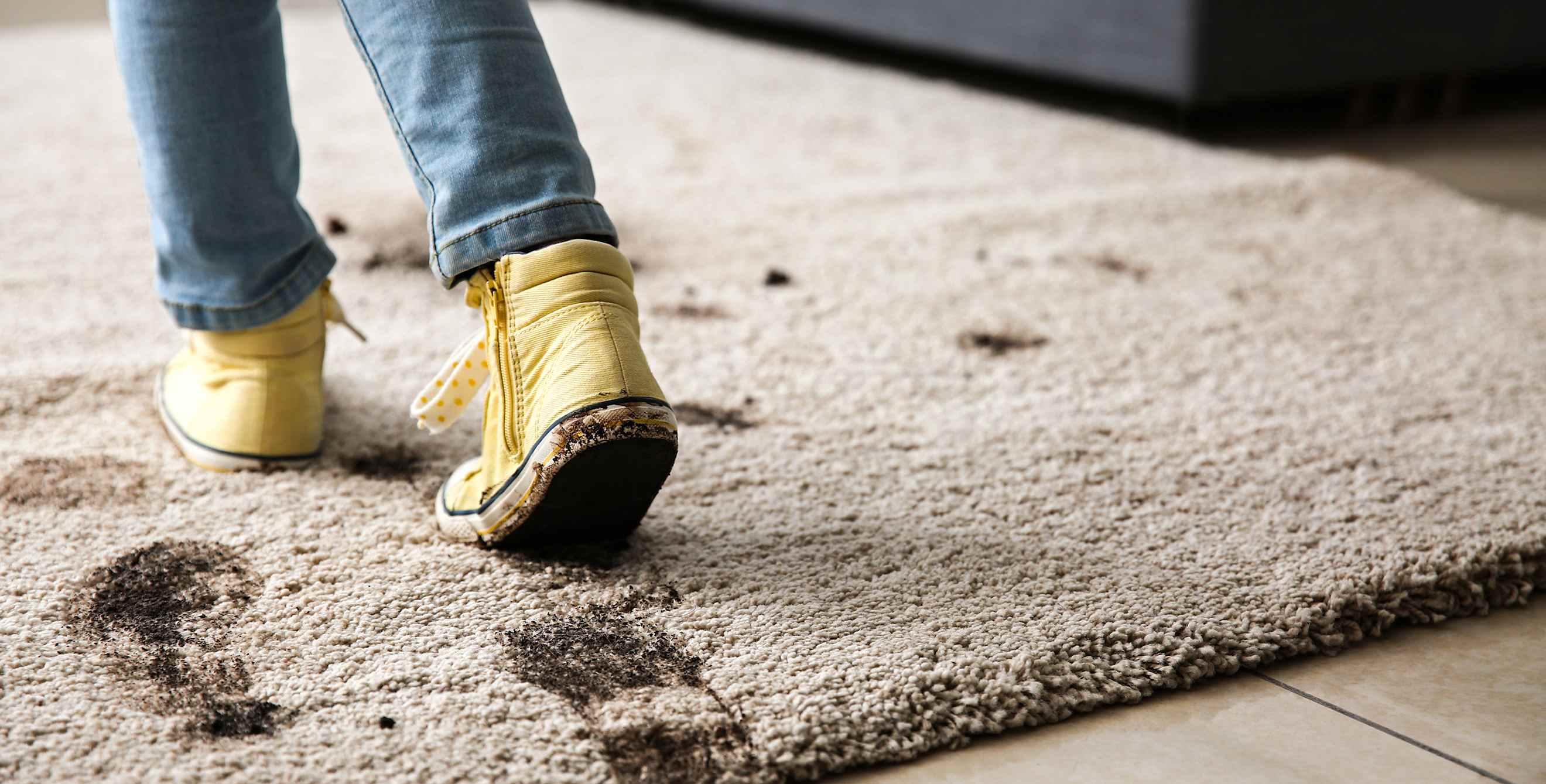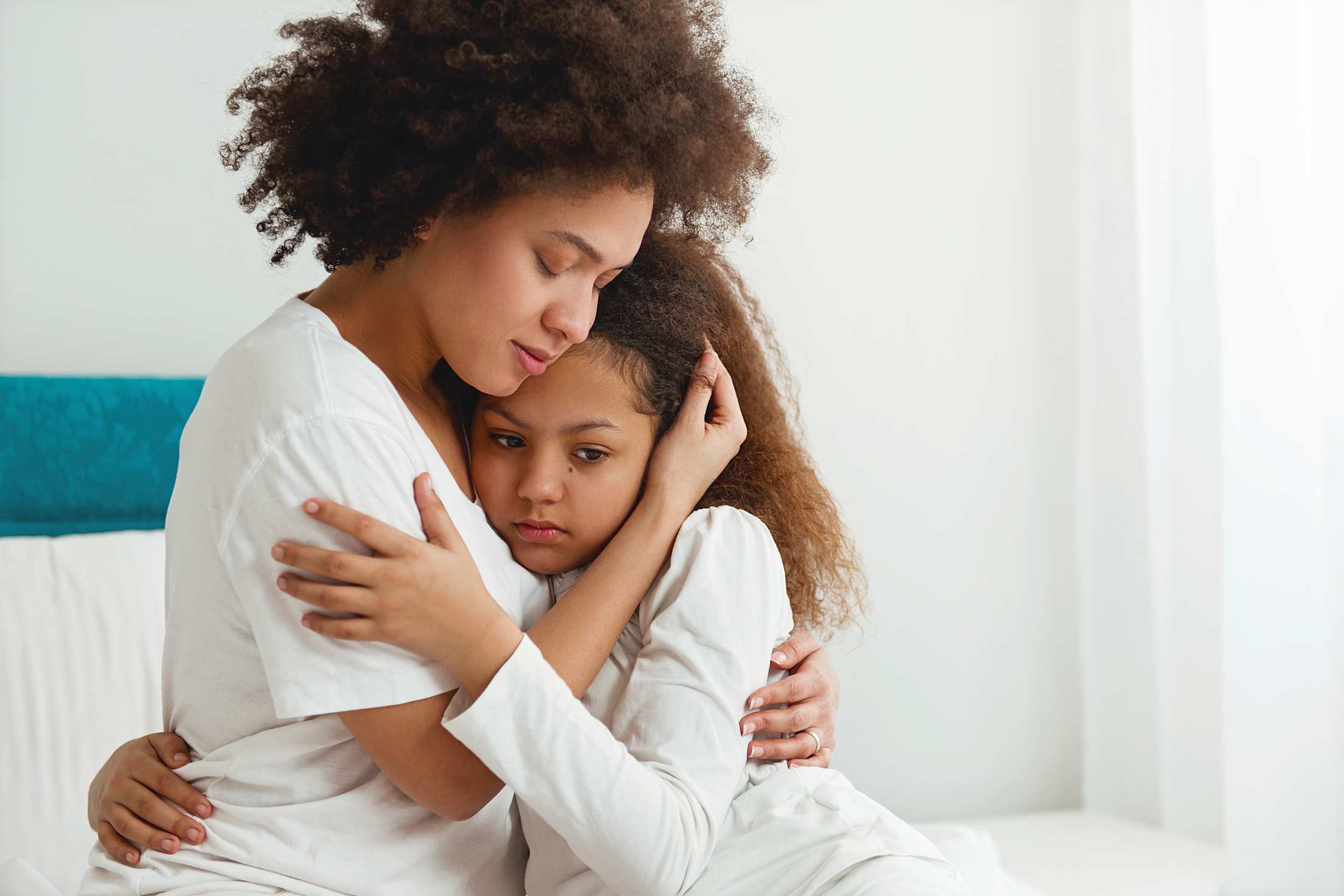
What to Do When Your Child Breaks Something
Follow these 5 steps to right a broken window, dented door, or other damage.

Things break.
And when you have kids, breakage and damage may transform from rare to common, with baseballs shattering windows, elbows knocking glasses off tables, and scribbles and stickers adorning walls. It’s one thing when this happens in your own home—with your own possessions—but how should you respond if your child leaves a trail of minor destruction in someone else’s home?
Here, experts share five tips to keep in mind if your kids break or damage something.
1. Consider it a learning opportunity.
When your child breaks or damages something, it’s generally an accident or a result of your child not grasping the potential consequences of their actions. Treat these moments as a learning opportunity, recommends Carla Marie Manly, a California-based clinical psychologist and author.
“No matter the child’s age, the ideal parenting strategy is to take a no-blame, no-shame attitude that supports the child in taking responsibility, making a corrective action (amends), and moving forward in a positive way,” Manly says.
As a first step, ask your child if they’re OK. After all, there may be glass or other sharp pieces underfoot. “If the child is unharmed, then the focus moves to the situation and broken item,” recommends Manly.
This is when you can really embrace the learning opportunity, notes Manly. Ask kids what happened and discuss how similar accidents can be avoided in the future.
“The goal is to help the child see that accidents caused by running, wild play, etc. are largely preventable but that accidents can happen even when care is being taken,” she says. You also want to help increase their awareness of how accidents can impact others (e.g., the owner of the damaged property or other person who may have been hurt as a result of the accident).

2. Skip negativity.
It’s natural to be upset or frustrated when something breaks. Take a deep breath and avoid raising your voice or excessive scolding.
“When a child makes a mistake, it’s important not to criticize, insult, yell, scream, blame, or overreact in any way,” Manly says. These types of reactions can lead to a cluster of negative outcomes for your child, she says: Kids may feel unsafe or shamed, and opt to hide these types of errors in the future, rather than learning how to take responsibility for their actions.
“Further, children who are disparaged or blamed chronically come to believe that they are bad children; this can create long-term self-esteem and mental health issues,” Manly adds.
3. Keep your kid’s age in mind.
There’s a difference between a two- and 12-year-old knocking a glass off the table and breaking it.
“Depending on your child's age, your response to their breaking something will vary,” says Evie Granville, etiquette expert and co-author of Modern Manners for Moms & Dads: Practical Parenting Solutions for Sticky Social Situations.
With a baby, skip addressing the issue with the child and go straight to clean-up and speaking with the owner. “With a toddler you can talk about what happened to help them understand cause and effect. What did they do to cause this item to break? What do we need to do differently next time?” Granville suggests.
With older children, talk about the effect of their actions, Granville says. “We help kids build empathy when we highlight how our actions have an effect on others. We can ask our child, ‘How do you think your friend feels about their broken toy?’” says Granville. “Talking about how our child would feel if someone broke something of theirs is helpful too.”

4. Apologize and try to make it right.
Of course, it’s not just about your child: If something is broken in someone else’s home, there are other people involved too.
“Whether it was an honest mistake or a child being a little too rambunctious, the best thing is for you and your child to approach the owner of the broken item and fess up,” says Sarah Davis, etiquette expert and co-author, with Granville, of Modern Manners for Moms & Dads.
You’ll want to apologize and offer to make it right, Davis says. “Most of the time, the parent will need to do the talking, since children are often too embarrassed to speak in these situations,” Davis notes.
If something was broken without the owner realizing, add a quick explanation of what happened as well, she says.
“As the adult guest, you should do your best to help,” says Jodi R.R. Smith, owner of Mannersmith Etiquette Consulting and author of From Clueless to Class Act: Manners for the Modern Woman and Manners for the Modern Man. But ask before you act, she counsels—that is, don’t immediately blot out a stain or start sweeping glass shards; instead, ask how you can help.
If appropriate, offer to have a damaged item cleaned, replaced, or repaired, Smith says.
“Sometimes that's not possible—either because the item is irreplaceable or you can't swing it financially,” Davis says. Or perhaps the host will demur your offers to fix or replace items, maybe saying, “Don’t worry about it” or “It’s not a big deal.”
In those situations, Smith says, “a gesture or token is still appropriate, in addition to a handwritten apology.”
In some cases, making it right may involve using your homeowners or renters insurance. “In addition to insuring your home and personal belongings from damage or theft, homeowners insurance also includes personal liability coverage in the event you’re legally responsible for injuring someone or damaging their property,” says Pat Howard, property and casualty insurance expert.
But keep in mind, personal liability coverage only covers accidents—not intentional acts, Howard says. Petty vandalism, for instance, won’t be covered.
5. Try to avert the potential for mishaps beforehand.
The best possible scenario is for nothing to break. So when you go over to grandma’s or drop off your child on a playdate, scan the space for breakable items and gently suggest placing them out of harm’s way.
“If you’re hosting a playdate, all special toys, stuffed animals, or blankets should be tucked away from guests,” Smith recommends. “Snacks should only be served in easy-to-clean spaces,” she says. That way, spills won’t damage anything precious.
If the situations are flipped and someone else’s child damages something in your home, respond with your own good manners and kindness.
“Things do happen and people’s feelings are more important than objects,” Smith says. “If their child says they are sorry, your graceful acceptance will be a lesson worth remembering.”